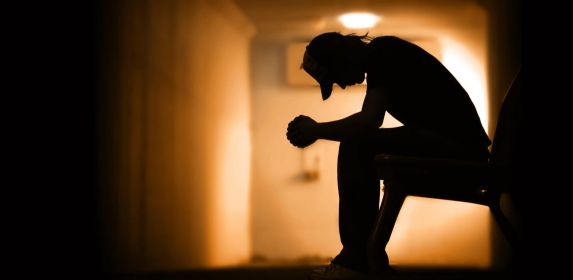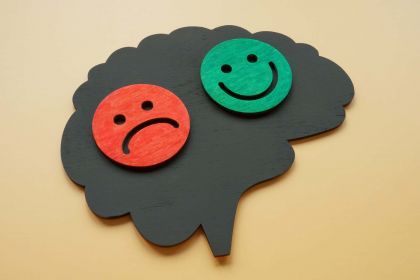Dual-Diagnosis
Dual Diagnosis Treatment Center in Los Angeles, CA
Studies show that more than 50% of mental health disorders arise from drug and alcohol addiction conditions. Hence, it is only proper for mental health treatment centers to address co-occurring mental health disorders. At Harmony Place, we offer dual diagnosis treatment in Los Angeles, California.
Treating both mental health and substance use disorders is known as dual diagnosis treatment, or co-occurring disorder treatment. Harmony Place provides an individualized treatment program for you, whether you’ve already been diagnosed with a mental health disorder or you discover one while here with us.
By receiving an accurate diagnosis and treating the co-occurring disorders together, our dual diagnosis treatment center can assist with our patients’ long-lasting recovery. For more information about our co-occurring treatments in Los Angeles contact our admissions team today.

What Are Dual Diagnosis Disorders?
A dual diagnosis is another common term for co-occurring mental health and substance use disorders. Many people turn to drugs or alcohol to cope with their mental health symptoms leading to further issues. For instance, a person experiencing alcohol abuse can also experience depression.
According to MedlinePlus, “About half of people who have a mental disorder will also have a substance use disorder at some point in their lives and vice versa.” The two most common groups of mental conditions that co-occur with substance abuse are anxiety and depression.
The patients at our dual diagnosis center in Los Angeles receive an integrated treatment that focuses on addiction and mental health disorders by working directly with our clinical team. By placing a client with a dual-diagnosis disorder in an environment with experienced doctors, therapists, and staff, we are able get to identify and treat the client’s actions, emotions, and behaviors that led to addiction.

Call Us 24/7: (855) 652-9048
Common Mental Health Disorders Treated at Dual Diagnosis Centers in LA
Here are the most common co-occurring mental health issues that we treat at our dual-diagnosis treatment facility in Los Angeles:
Mood Disorders
Mood disorders include disorders like major depressive disorder, bipolar disorder, and seasonal affective disorder. Mood disorders, also known as affective disorders, are a category of mental health conditions that can cause severe emotional symptoms. For example, bipolar disorder will cause someone to have waves of extreme emotions that differ dramatically.
These conditions can disrupt people’s ability to function in their daily lives and may lead to substance abuse and other risky behaviors. Dual-diagnosis treatment usually includes medication-assisted treatment and psychotherapy.
Anxiety Disorders
Anxiety disorders include generalized anxiety disorder, social anxiety, post-traumatic stress disorder (PTSD), obsessive-compulsive disorder (OCD), panic disorder, and phobias. Anxiety disorders can cause severe emotional distress. Anxiety can be caused by various factors, including genetics, brain chemistry, and life events. People with anxiety may experience symptoms such as feelings of panic, fear, and apprehension, which can interfere with everyday activities such as work, school, and relationships.
One study reported the lifetime prevalence of co-occurring addiction and generalized anxiety disorder in about half of the individuals who develop GAD.
Our dual-diagnosis treatment center offers anxiety treatment in Los Angeles which typically includes medication management, therapy, or a combination of both. In some cases, anxiety disorders may be caused by other mental illnesses, such as depression.
Personality Disorders
Borderline personality disorder, narcissistic personality disorder, antisocial personality disorder, and many more are included in the list of personality disorders. Personality disorders are types of mental illnesses characterized by psychiatric issues, such as distorted patterns of thinking, feeling, and behavior. These disorders manifest as maladaptive behaviors or difficulties relating to others. They can affect people of any age, race, gender, or socioeconomic status.
Common symptoms of personality disorders include emotional instability, social withdrawal, paranoia, and inflexibility. Overall, personality disorders are serious conditions that require specialized treatment to manage their symptoms effectively in the long-term.
Impulse Control Disorders
ADHD and compulsive sexual behavior are examples of impulse control disorders. Impulse control disorders are a group of mental health issues that cause people to have difficulty controlling their impulses. While everyone has occasional impulsive thoughts or behaviors, people with impulse control disorders have difficulty resisting acting on these impulses. As a result, they may engage in harmful or risky behaviors, even when they know the consequences could be negative.
Impulse control disorders can be caused by various factors, including genetic predisposition, brain chemistry, and environmental stressors. Anyone struggling with a co-occurring impulse control disorder and substance use disorder should seek dual diagnosis rehab in California to receive the appropriate treatment and resources needed for recovery.
Psychotic Disorders
These disorders include schizophrenia, schizoaffective disorder, and dissociative disorders (DID, depersonalization). Psychotic disorders are types of mental health issues that can cause people to see, hear, or believe things that aren’t real. These disorders can make it difficult for people to think clearly, manage their emotions, relate to others, and function in day-to-day life.
Dual-diagnosis treatment centers can help people suffering from co-occurring addiction and psychotic disorders by providing them with medication, therapy, and other support services. Because mental health and addiction treatment are not one size fits all, treatment approaches are always highly individualized to address the co-occurring issues simultaneously. Sometimes, hospitalization may be necessary to treat people with co-occurring substance use and psychotic disorders. This is to ensure the safety of individuals suffering from addiction and psychotic disorders and those around them.
With the proper treatment, many people with co-occurring addiction and psychotic disorders can successfully recover once they receive dual diagnosis support.
Dual Diagnosis Treatment in Los Angeles, CA
At Harmony Place, we provide various dual-diagnosis treatment programs for our patients. A dual-diagnosis treatment program can be an inpatient or outpatient program.
Inpatient programs provide 24/7 care for patients with severe addiction and mental illness. The treatment team includes doctors, nurses, counselors, and therapists, who will provide personalized treatment plans using the patient’s unique needs.
Our outpatient treatment in Los Angeles allows patients to attend regular therapy sessions and counseling appointments from their homes or supportive housing. It is an ideal choice for people with a robust outside support system. However, it is important to highly consider inpatient programs if mental health concerns are complicated.
Our dual diagnosis treatment center in Los Angeles can last for 30 days or longer. Treating co-occurring disorders begins with knowing the appropriate type of treatment program. Contact our admissions team today in order to receive an over-the-phone assessment that will help us tailor your treatment plan to your specific needs and circumstances.
Dual Diagnosis Therapy Options
Our dual diagnosis treatment center in Los Angeles, California, provides evidence-based therapies and holistic modalities for those with co-occurring mental health disorders alongside substance use.
Our clinical professionals thoroughly evaluate the patients to create individualized treatment plans. Our recovery program includes therapies, counseling, medication management, after care, and other treatments that alleviate mental disorders.
Our dual diagnosis treatment and therapy options include:
-
Psychoeducational Groups
-
Relapse Prevention
-
Individual Therapy
-
Group Therapy
-
Cognitive-Behavioral Therapy (CBT)
-
Dialectical Behavior Therapy (DBT)
-
Motivational Interviewing
-
EMDR Therapy
-
Psychodrama
-
Nutrition Counseling & Fitness
-
Life Skills Development
-
Peer Support Groups
-
Experiential Therapies
FAQs About Our Dual Diagnosis Treatment Center in Los Angeles, CA
Here are some of the frequently asked questions people ask about our dual diagnosis treatment center:
Can a mental disorders lead to other types of addiction?
Addiction can manifest itself in other ways besides drug or alcohol abuse. During treatment individuals are removed from their drugs and alcohol. Thus, it is not unusual for other addictive behaviors to surface. At Harmony Place, we work with clients to identify such behaviors. We endeavor to guide our clients toward recovery from all addictive behaviors.
“‘Process addictions are repetitive behaviors sometimes referred to as behavioral addictions.” In the short term, some behaviors provide a “reward,” and survival depends on certain rewards. For example, eating and sex are pleasurable biological processes, so the reward is the impetus for the reproduction and survival of the species.
Current evidence reveals that behavior addictions possess features that resemble those of substance abuse disorder. These behavior addictions serve to provide the same type of immediate gratification that is derived from substance use. They both offer rewards that will incentivize individuals to repeat the behavior or activity despite any negative consequences that follow or that interfere with day-to-day living.
Behavior addictions may initiate feelings of tension or excitement before performing the behavior and a sense of pleasure or relief when the behavior is completed. Over time, behavioral addictions, like drug or alcohol dependence, become more compulsive and less pleasurable, often leading to severe substance use disorder.
Afterward, individuals typically experience guilt or regret their actions. At this point, the behaviors are acted out to avoid adverse effects (such as reducing anxiety or quiet obsessions).
How many of those with mental disorders also struggle with addiction?
Out of all Americans battling diagnosable mental disorders, about half also struggle with co-occurring drug or alcohol addiction. Since only about 10 percent of the people who suffer from addiction ever receive treatment, either from inpatient or outpatient treatment programs, there are many people out there carrying on with untreated mental health and substance abuse struggles. If you or your loved one is struggling with either a substance use disorder, mental health disorder, or both, call us at Harmony Place treatment center.
What are common signs of a mental disorder?
There are so many psychiatric disorders out there that there’s no universal way to identify them all, but if we had to boil it down to a manageable list, here are some common signs to look for in somebody who might be struggling with mental illness:
- Distinct, visceral mood swings
- Frequent expressions of anger and frustration
- Social isolation
- Struggling to keep up with daily tasks
- Suicidal mentions or ideations
- Changes in sleeping and eating habits
- Heavy substance use
- Paranoia, excessive anxiety
- Unexplained cuts, injuries, and ailments
How do I stop enabling someone with a dual diagnosis?
Many addicts with a secondary disorder (aka co-occurring disorder) recognize that they can’t stop using substances, gambling, drinking, etc., on their own. Likewise, many of these same people wouldn’t be able to continue to indulge in this behavior if enablers weren’t helping them. An enabler, aka a codependent, commonly rescue anyone caught up in any of the compulsive or addictive, self-destructive behaviors mentioned above. This keeps all parties from living a fulfilling life.
10 Tips to Stop Enabling the Person with Co-Occurring Disorders in Your Life
- Stop providing money that allows the addict to gamble, purchase drugs or alcohol, or participate in any other addictive pastimes.
- Do not pay bills, fines, rent, or food expenses for the addict. This helps that person find his or her own way through the debt and damages that he or she has incurred.
- Avoid repaying loans that the addict has accrued and stop providing money to pay back friends from whom the addict has borrowed money.
- Don’t lie to cover up or trivialize the facts about the addict’s actions or behavior.
- Stop making excuses for the addict or helping him or her by calling in sick or apologizing on his or her behalf for not attending events or appointments.
- Do not do anything for the addict that he or she should be able to do when sober or clean.
- Avoid joining an addict in his or her addictive activities; this includes buying lottery tickets if you have a partner who gambles or buying alcohol and drinking around an alcoholic.
- Do not lend, gift, or give an addict items that he or she can sell or pawn for money. Any item with even nominal value is easy cash for an addict.
- Set your boundaries and stick to them. Do not make threats, and do not back down on your consequences.
- Be aware of codependent tendencies that cause you to want to rescue or save the addict that you are close to. You may need to receive counseling yourself to identify the codependent behaviors in yourself.
-
Absolutely the best recovery center around.
I am forever grateful to have had this experience. I would recommend anyone who wanted help to come here. This place literally saved my life. I have overcome so many obstacles that always stood in the way of my recovery. It’s not just because I was ready… the approaches the therapists use come from an empathetic, compassionate, and understanding place. They were able to hold the mirror up and help guide me through making solid changes.
Daniel H.
August 2017 -
This place literally saved my life.
After overdosing, my parents forced me to check into rehab. After interviewing many other facilities, I decided to go to Harmony Place from my home in Phoenix. I was struggling with…a drug addiction and had been trying for years to recover. In the past, left 2 treatment centers AMA and 1 AWOL. I had very negative experiences in the other treatment facilities, especially with my therapists, so I didn’t go in with an open mind or good attitude- even though they worked with my parents regarding finances. However, the staff was patient with me. The techs were kind, knowledgeable, and many were in recovery themselves.
Mary M. -
They Answered on the First Call
When I called Harmony Place…I knew immediately that this was the right place for my child… Harmony Place is specifically designed for…and tailored to providing a safe environment. The staff [are knowledgeable and some are in recovery]. The staff knew each client and were on top of each client’s progress. Harmony Place has a small clientele and each client are able to receive all the help they were entitled to. I would recommend Harmony Place to anyone who is looking for a small setting… My daughter is currently going into sober living and her counselors did a wonderful job in finding a right fit for her – affordable, safe and a good environment for her.
Robyn
Loved-One -
I’ve Been Searching for the Perfect Words…
I left Harmony Place in August of 2015 and I have been searching for the perfect words to describe my experience during my stay; and still I can’t really find them. How do you really describe a place with a staff and a program that saved you? Addiction is a terrible thing to go through and a heartbreaking thing for your loved ones to watch. Many people, including myself go into different treatment centers throughout their addiction searching for ways to find recovery. Nothing worked for me, not the 5 rehab stays I had, then, I came here.
Dominique C.
Alumni
How Harmony Place Can Help Dual Diagnosis Disorders
The staff at our drug and mental health rehab in LA always prefer an accurate diagnosis for every new client before administering medical care to them. Our goal is an ongoing recovery process from addictive substances. It does not matter if the individual has been diagnosed with a mental health disorder. We love to make our diagnosis to know the individuals’ common mental health issues. Thanks to our extensive assessment and evaluation process after admission. Our evaluation process includes:
- Pre-Admission Assessments – reviewed and approved by licensed health care practitioner
- Nursing Assessments – completed by licensed LVNs and RNs
- Psychosocial Assessment
- Patient History and Physical Assessment
- Psychiatric Evaluation
- Psychological Tests
Our dual diagnosis treatment center in Los Angeles, California, is here to support recovery from beginning to end. Contact us to address your addiction and mental health and begin treatment today.





